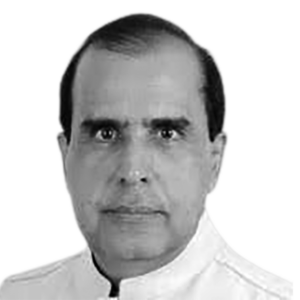Healthcare has never been as important as it is today. With India becoming the most populous country in the world, its healthcare needs will continue to expand and become more complex. The changing ecosystem needs agility in the government’s thinking and policy shaping.
India is one of the few countries with high out of pocket spending on healthcare. As per data from the World Bank, 54.78% spending on healthcare is out of pocket in India compared to the world average of 18%. India’s healthcare spending continues to be low (less than 2% of the GDP) compared to the 19% in the US. The good news is that recent budget has seen a modest increase in allocation for healthcare compared to the previous financial year and additional resource deployment in strengthening the primary healthcare.
Let us look at the gorund realities. Just as we started thinking of covid as history, it has come back seeking renewed attention. Hospitals have been asked to be prepared, pharma companies are expected to ensure adequate raw material for the medicines and countries importing generic drugs from India are reminding manufacturers to maintain a committed supply chain. Vaccine manufacturers switched on their production lines again. India continues to be home for higher incidences of malaria, tuberculosis, HIV and other life-style diseases seeking concerted efforts to control or eradicate these diseases.
Think of healthcare infrastructure – it is largely concentrated in tier 1 cities. The private sector plays a dominant role in healthcare delivery. Majority of hospitals with specialized healthcare are in metro cities. Public sector hospitals have higher patient footfall but have capacity constraints resulting in the long waits for specialized treatments. The government is expanding the network of AIIMS (apex hospitals), but we still have a long way to go. Attention is needed to ensure rapid expansion of public sector hospitals to tier 2 and tier 3 cities including upgradation of existing district civil hospitals.
Healthcare cost to the consumer is another area of concern. We have robust price control mechanism with NPPA i.e. National Pharmaceutical Pricing Authority as the regulator. Price controls on select essential drugs and devices economizes the cost to some extent but does not ensure sustained availability of specialized drugs and devices. Cost to the consumer also includes 12%-18% tax on most of the medicines and medical devices. This number is high. As a welfare state, the government should not be taxing the health of the consumer at such a high rate. In fact, the tax went up by 2.5% after the introduction of the GST.
Our dependence on the imports of medical devices and diagnostic equipment is as high as 80%. Medical devices are the backbone of healthcare infrastructure in private and public sector including Ayushman Bharat. Higher custom tariffs deprive us of the next generation of the devices and restricts market expansion. In-country manufacturing and market expansion are two sides of the same coin. A reasonable, stable, and predictable tariff regime will help in flow of technology and the market expansion will ensure last-mile healthcare delivery.
Primary Healthcare Centres (PHCs) have an important role to play. The Ayushman Bharat scheme has done great work in upgrading primary healthcare centres to health and wellness centres (HWC). The target of 1,50,000 HWCs have been achieved well within the expected timeline. The question, however, is if this number is adequate to support the current and growing population in India. We need more HWCs to cover 6,38,000 villages and 5,000 tier 4 cities. Private hospitals chains, if incentivized, can invest in primary healthcare in unrepresented areas.
India’s position on the number of doctors and nurses as a percentage of the population is not very encouraging. We have 1 doctor for a population of 854 with a total 1.3 million registered allopathic doctors. This gap can be the single most important factor to paralyse our healthcare ecosystem if not addressed urgently. The limited number of doctors, nurses, radiologists, and lab technicians tend to prioritize urban and private sector hospitals instead of working in smaller cities and villages.
While we are adding capacity to bring more doctors and paramedics into the work stream, our 5,65,000 Ayurvedic Unani doctors who are qualified and regulated, can be trained for handling basic health needs, prescribing select allopathic medicines for common diseases and/or referring patients for specialized treatments. Telemedicine is a great tool which can be used by Ayush doctors to create an effective link between remote patients and specialized doctors. Some states have allowed Ayush doctors to practise allopathy. This year’s budget should provide for the expansion of medical schools and training of Ayush doctors in the basic allopathy stream of the treatment.
We have over 80,000 chemist stores and over 10,000 manufacturing units spread across the country. The regulatory oversight mechanism is inadequate. Quality issues which have seriously impacted our reputation after sub-standard cough syrups or eye drops got the global attention. These are the fallouts of inadequate regulatory oversight on mushrooming manufacturing plants and drug dispensing stores. Recent CDSCO notification announcing the list of 48 substandard drugs is not helpful. Lack of supervision also leads to the infiltration of counterfeiters and spurious drug manufacturers in the supply chain. It not only affects domestic consumers, but also sullies India’s name globally.
Ayushman Bharat covering secondary and tertiary healthcare has been a game changer towards expanding health care needs for weaker sections of Indian society. Since private sector hospitals are major contributors to the success of this scheme, their continued participation is a must for the benefits to reach the target segment. The success of the scheme depends on timely reimbursement for these hospitals so that they are encouraged to continue accepting the patients covered under the scheme.
Dividents from the investement in healthcare are quick and immediate. Being most populous country, healthcare ecosystem must ensure its reach to the last mile.

Rakesh K Chitkara has led public policy practice for major multinational corporations including Abbott Laboratories, General Electric, Dow Chemical and Monsanto.













